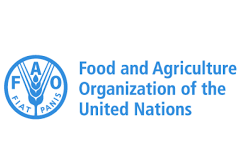The United Nations Food and Agriculture Organisation (FAO) is collaborating with the Nigerian Government in the provision of tools for flood anticipation and mitigation in order to boost security.
Mr Koffy Kouacou, the Country Representative of FAO to Nigeria and ECOWAS, spoke with newsmen at the Anticipatory Action for Flood Risk in the Sahel Workshop on Wednesday in Abuja.
He said no fewer than 52 million persons in the region were food insecure.
“It is a regional workshop for learning and identification of best practices, challenges and way forward to scale up anticipatory action for floods in the Sahel and supported by German Government and other partners.’’
He said that one of the major factors driving food insecurity in the Sahel Region was climate change which results in flooding.
“So, how we can better anticipate how to allow our farmers to better cultivate and boost the production in the country? That is one of the key purposes of the regional workshop.
“It is better for all of us to discuss how we can better anticipate how to help the farmers boost their production and grow their yield.
“We are facing a very serious security situation in our region; for example, in 2020, we had around 7 million people in our region affected by the flood.
“FAO did studies in six countries; we have 2.4 million hectares of land destroyed by flood.’’
Kouacou said that in 2020, only in Nigeria, flood destroyed farmland and crops that were capable of feeding 5 million people.
“So, if we have all this information in advance, we can avoid these destruction and we can advise the government.
“So, the key outcome of this meeting is how we can help the government have all the tools for anticipatory action.
“The relevant government bodies are already onboard; we will set up a taskforce to support the government in the implementation process to monitor and evaluate all the outcome of this workshop to implement,’’ he said.
Luca Parodi, Regional Specialist for FAO working on Anticipatory Action and Emergency Response, said the workshop brought together many actors, regional partners, the government, other UN agencies to work together on how they could better manage flood risk.
Parodi said the workshop also availed the opportunity to share information on how stakeholders could collectively improve on early warning, surveillance risk and the information to the communities.
“Without good information and good early warning, you cannot actually anticipate anything.
“We need to invest in ways to manage risk because we know unfortunately the Sahel according to climate suggestions is going to really change in terms of the frequency and strength the hazards that we are going to face.
“Our role at FAO is to support the government and the regional organisation to learn new ideas and strengthen what they are already doing to face this riskier future,’’ he said.
Parodi said there was need for early warning and funding to implement it. (NAN)


